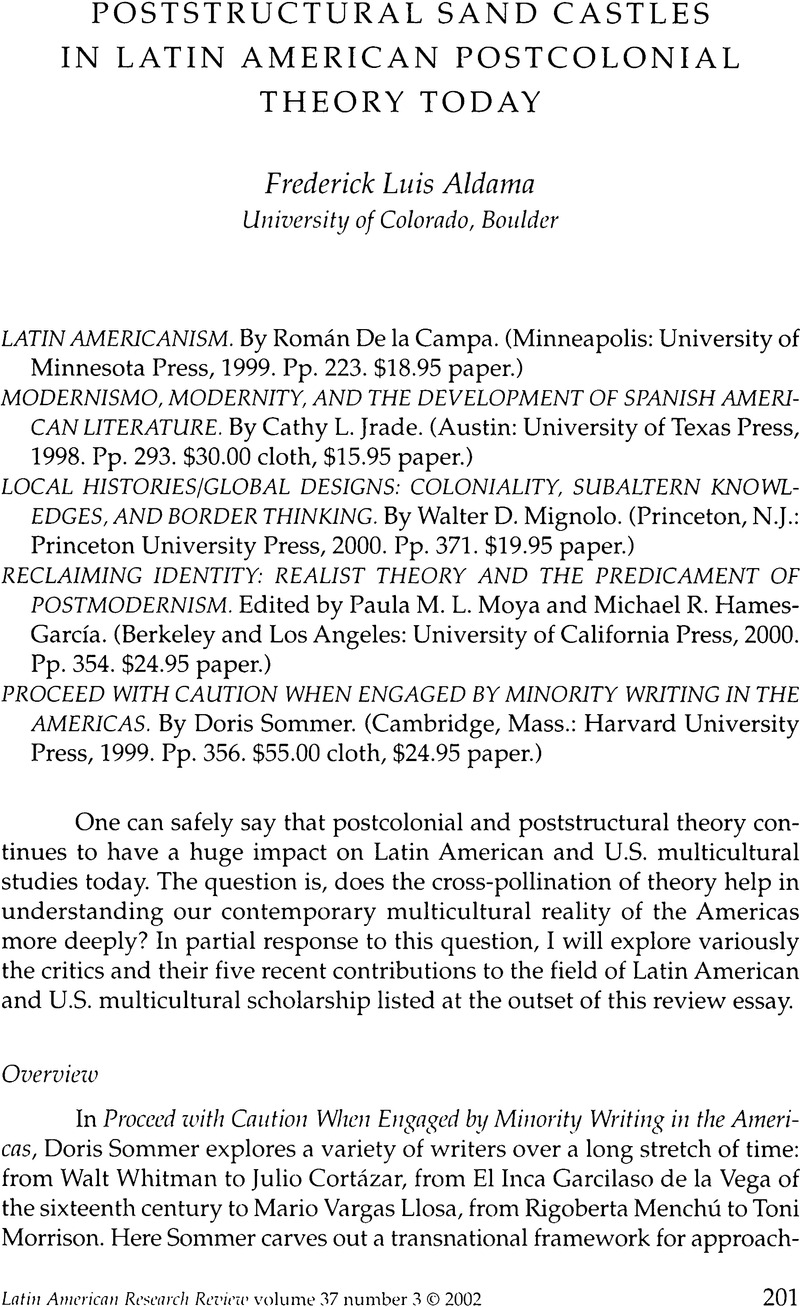Published online by Cambridge University Press: 05 October 2022

1. See the initial formulation of this theory in Mohanty's, “The Epistemic Status of Cultural Identity: On Beloved and the Postcolonial Condition,” Cultural Critique 24 (1993):41-80.
2. The storytelling form of magical realism epitomizes this erasing of difference. Postcolonial theorists criticize poststructuralists for identifying magical realism as paradigmatic—or what counts as ethnically authentic—of third world literary production and epistemology. See Gayatri Spivak's essay, “Postructuralism, Marginality, Postcoloniality, and Value,” in Literary Theory Today, edited by Peter Collier (Ithaca, N.Y.: Cornell University Press, 1990). See also my forthcoming book Rebellious Mimetics.
3. This practice recalls the Modernistas, who secured their incomes as journalists, civil servants, ambassadors, or lower-ranking diplomats while using esoteric beliefs as a critique and system of counter-knowledge to imperialist materialism and technology.
4. Steve Woolgar, “On the Alleged Distinction between Discourse and Praxis.” Social Studies of Science 16 (1986):309-17.